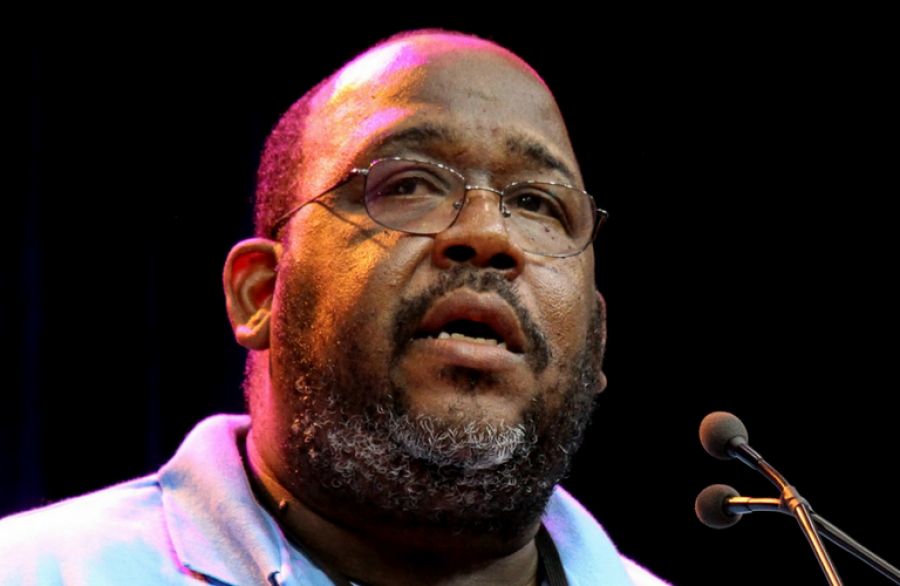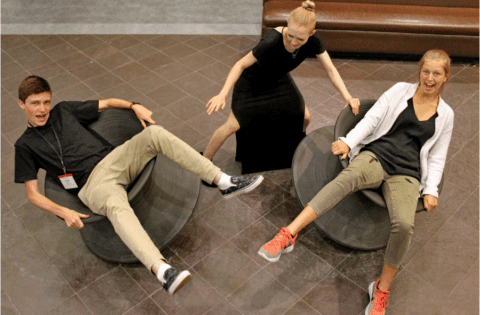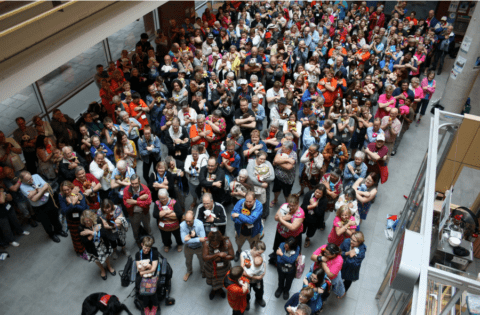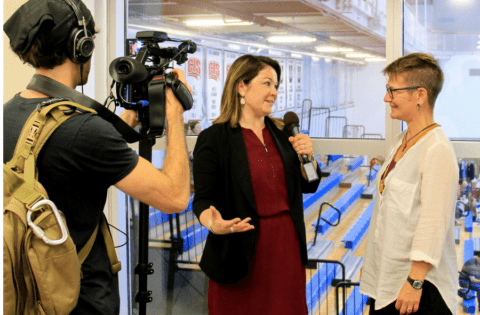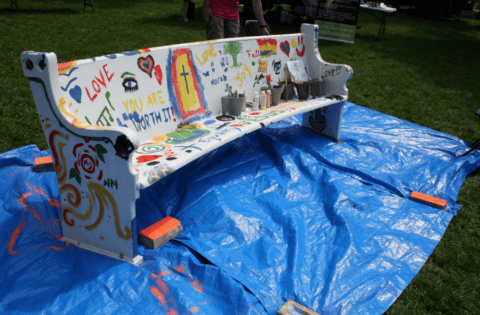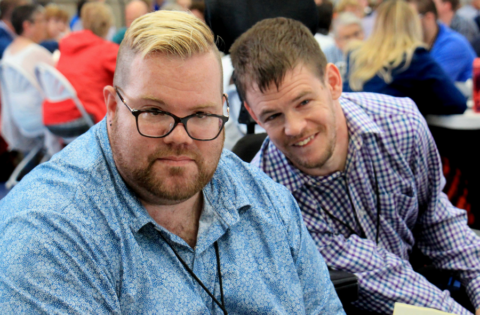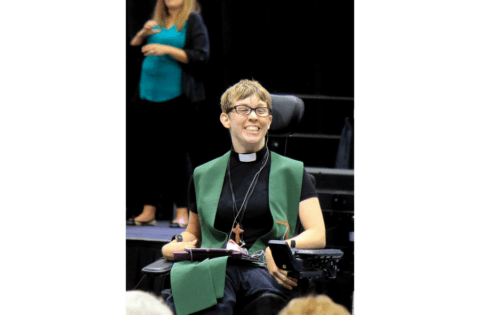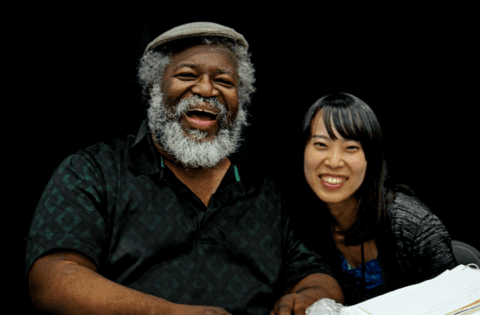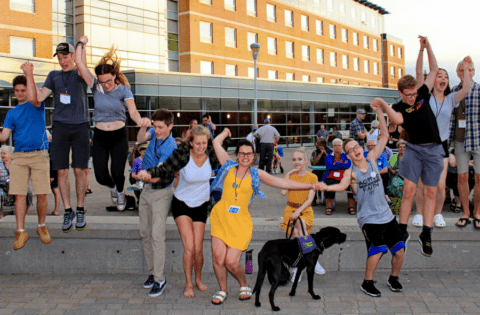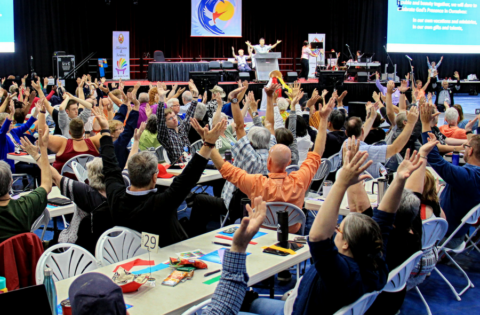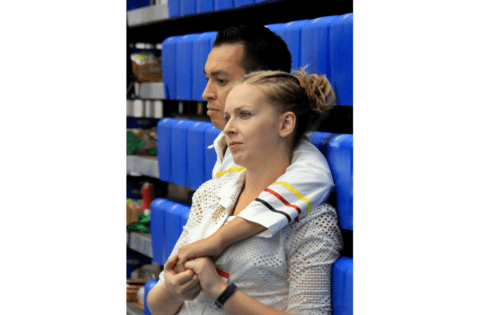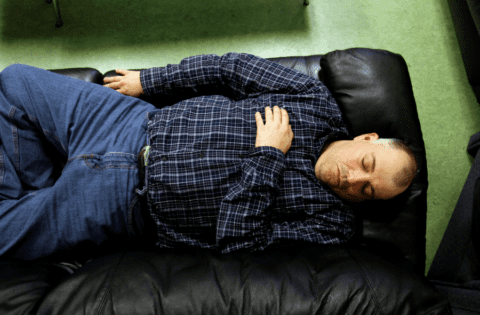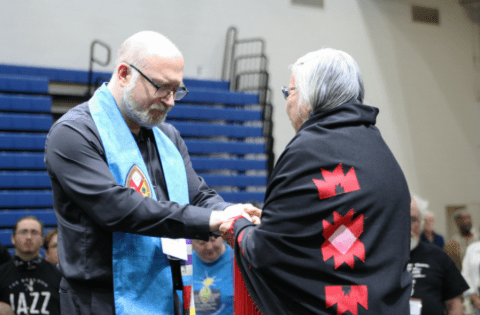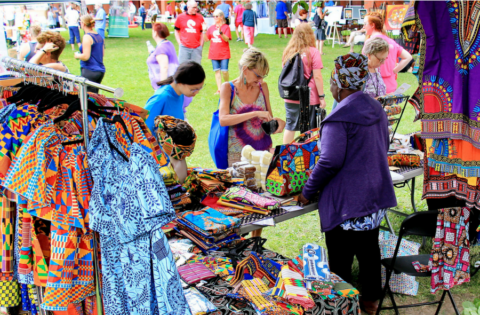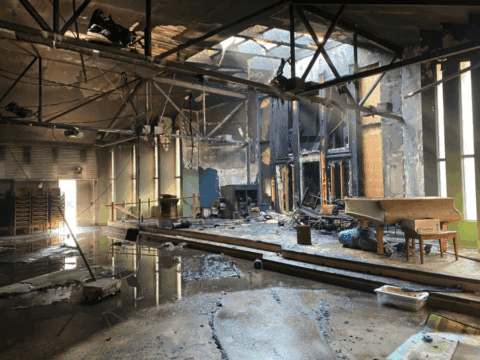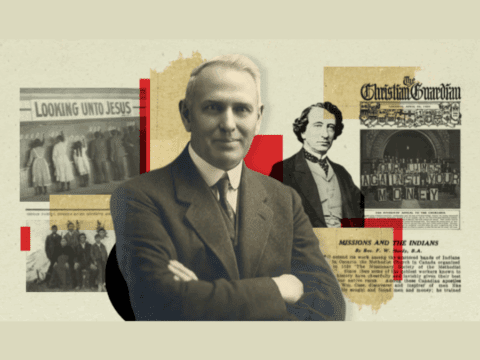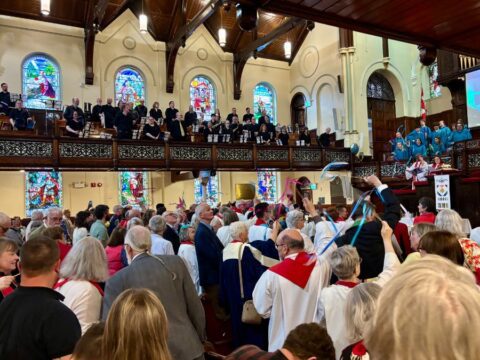Rev. Paul Douglas Walfall was an intercultural observer at the United Church of Canada’s 43rd General Council. His speech on Friday, July 27 at the meeting about racism within the United Church led many others to the microphone to share their stories and renewed the conversation about race. He spoke to Emma Prestwich.
Q: The church sees itself as an inclusive, welcoming place. What do you think is holding it back from addressing the racism you talked about?
A: The United Church is a product of the society it is in. Canadians are polite. And the politeness means that you see something, but you smile and you don’t see it because you don’t want to ruffle the person’s feathers, you don’t want to make the person feel embarrassed, or you don’t want to feel embarrassed yourself, so it’s easier to ignore it. And I think that at some points, we are so polite that we don’t want to handle the messy stuff. We tend to want to ignore it or we rationalize it away. The reality in Canada, with clear laws that speak out against discrimination and racism that we do have, it has driven the conversation underground. Sometimes people fear speaking their mind because they don’t wish to be labelled as racist, etc. So we have polite conversations with each other but sometimes then these polite conversations we don’t get to the truth.
Q: The stories you shared from other black ministers — had they shared those with you directly?
Yes, they did. One of them was about me, actually. But I’ll leave you to determine which one it was.
Q: So you have experienced racism within the United Church?
A: Yes, yes. And the thing about racism in Canada and within the United Church of Canada is that, I’ve said elsewhere, it’s not the in-your-face type of racism that you sometimes encounter in the United States. It’s a more subtle experience, micro-aggressions, often, but sometimes it rears its head into some unfortunate things being said.
Q: You spoke about the lack of Caribbean or African-American music in services. Why do you think that is?
A: I think sometimes worship organizers don’t spend the time to research, to find music from other places in the world, apart from that which we know about in Voices United and More Voices. Even in More Voices, there are some songs with a distinctive Caribbean flair or that were written by Caribbean people.
When I was president of Alberta and Northwest Conference, I had to insist on, every time we had a conference, that there had to be something from the Caribbean in the worship services. You have somebody from the Caribbean who is president of your conference, and there’s nothing that I can identify with in the worship. And oftentimes when I asked that question, it was “OK, Paul, you find it and bring it to us and we will include it.”
Q: You used a metaphor that’s so often used in the United Church about being at the table and expanded that to talk about how it doesn’t really matter whether you’re at the table, it matters who you are. Why did you use that metaphor?
A: It came out of a discussion that we had at our [Conference] executive meeting and the phrase was used. I was reflecting on the phrase after the discussion occurred at the executive meeting and I couldn’t reconcile that feeling of being invisible with the fact that, yes, I have been afforded a seat at the table, so why is there also a feeling of being invisible? The two things seem almost contradictory. Perhaps I’m asking the wrong question. Is the question, really, “do I have a seat at the table, or is it, why am I at this table? What position do I hold at this table?” Because if you’re not viewed as a contributing member of the family, then something is absolutely wrong.
Q: How do you try and combat racism within your own congregation?
A: I believe I’m trying to raise awareness in my congregation that it exists. When my son just started school [in Alberta], he came home just three days after being at the school in tears because he had racial slurs heaped upon him and was threatened. It dawned on me, that yes, the people were smiling, but there are attitudes that we are not seeing that are hidden and we need to confront and be aware that they exist. As I said to my congregation once, “you have a black man as your minister, and there are certain things that I will experience that you will not experience. I will walk into Wal-Mart and the security guard will feel that he has to walk behind me to help me do my shopping, for some strange reason.”
Q: So there was an emotional response to what you shared, but have you heard any pledges from church leaders that there will be any sort of concrete action?
A: During this session, a friend of mine in Alberta texted me and said, “what did you say? It looked like a bomb just went off in the session.” [laughs] And I said, “you need to watch the tape.” That’s all I could say, because this was in the middle of people sharing their experiences. Since that time, people are still trying to process all that has happened [that] Friday. What I do feel is that the dialogue needs to occur. Before we move to anything such as formulating anything, there needs to be a dialogue in the United Church of Canada from coast to coast, that we are able to listen to the experiences of the races in our church and not only to listen, but to believe what people are saying to us, and then coming out of that, I think we will be able to say, “this is the path we need to take, let us commit ourselves to walk on it.”
Q: Do you have any confidence that that dialogue will happen?
A: I do. For one thing, the conversation on Friday was public, it was televised outside of the room, so people know the conversation occurred. So I think the church’s integrity is at stake if we don’t continue that dialogue. Not that I have any power or influence in the church, but I do plan to advocate for that dialogue to occur.
This interview has been edited and condensed for clarity.

